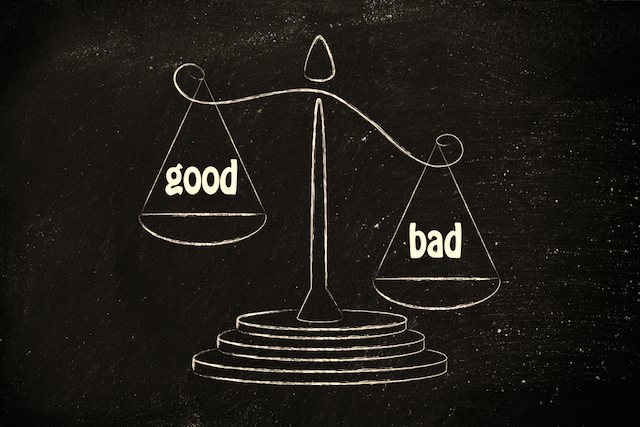
“Nothing is either good or bad, but thinking makes it so.” ~William Shakespeare
Like many women, I feared my own voice.
I feared what would happen if I acknowledged my feelings and I feared what would happen if I expressed them.
Above all, I feared that people would leave me if I ever communicated as my true self.
In my family and culture, feelings are things that are best when denied. I was taught they are a liability that, if embraced, would lead to fights, pain, and loneliness. I was encouraged to ignore, avoid, and push them down into the recesses of my mind.
Not surprisingly, by thirteen I developed severe depression, resulting in poor coping mechanisms, a reliance on medication, and a suicide attempt.
The need to express myself was natural and necessary, but my belief that it was wrong prevented me from ever owning my voice. Instead, I communicated in unhealthy ways:
- I was passive-aggressive.
- I had angry outbursts.
- I played the martyr.
And while I tried to suppress and control this side of me, it came out in waves of anger and hurt. Through decades of transformation, I now understand that many of my behaviors were based on my belief that things are either all good or all bad.
So how did I unlearn this belief and learn to express my true voice?
By learning how I played the game of black and white.
When we’re young, we’re taught that certain aspects of our personality are bad or wrong, while others are good and useful. And like most things we learned as kids, we need to unlearn them.
In order to fit in, feel loved, and gain acceptance we disown the “bad” qualities we believe we have and try to express ones that are seen as “good.”
This polarized thinking forces us to see the world in terms of black and white, right and wrong, or good and evil. And in this game of black and white, the only rule is that white must always win.
Unfortunately, the world isn’t that simple. Most things exist on a frustrating spectrum of grey.
Fortunately, we can learn to re-own these repressed qualities and transform them into qualities that benefit us and others.
For example:
- Owning our anger can lead to self-love, if this enables us to set boundaries to take better care of ourselves.
- Owning our self-expression can lead to genuine connection, if this enables us to get in touch with and communicate our true wants and needs.
- Owning our apathy can lead us to a passionate career, if this enables us to redirect our energy and quiet our fear of failure.
Here’s How:
The first step to seeing how you play the game of black and white is to determine which traits you’ve put into each category.
What qualities in others make you angry? Often the aspects of others that trigger us are the things we don’t like about ourselves. These are frequently the areas that we need to work on the most.
For example, when other people stated their boundaries, I previously felt threatened because I wasn’t comfortable setting my own. This taught me that I needed to address this issue in my own life in order to feel whole and attract other people with healthy boundaries.
To begin, list several “bad” qualities. These are the traits that go in your “black” pile (i.e.: lazy, late, disorganized, loud).
What qualities do you think of as good, desirable, and appropriate? These are the qualities that we are praised for or that we value in ourselves or others. List several “positive” qualities. These are the traits that go in your “white” pile (i.e.: honest, flexible, driven).
Next, determine how the game manifests in your life.
In what ways do you play the game so that “white” must win? What have been the consequences? For example, in believing that silencing my voice is good, I’ve been in unhealthy relationships, had angry outbursts, and felt depressed.
If you were to give the disowned trait a voice, what would it say? For example: mine would tell me that it’s safe to be the real me.
Finally, embrace the trait as neither good, nor bad, simply a part of you.
If you were to re-own that trait, how could it benefit you? Often, qualities we view as “bad” are harsh criticisms or expressions of our own fears.
For example, I often find that I am frustrated when I perceive someone to be lazy. This, however, is merely triggering my own fear that I am not doing enough. Owning this trait allows me to see that there are times when I should relax.
Owning it taught me that I don’t need to overwork in order to prove that I am worthy. Owning my lazy side would allow me to live a more balanced life and cultivate self-love.
Creating awareness around how you play the game of black and white will give you the freedom to consciously choose your behaviors instead of going on autopilot.
It will allow you to stop stumbling through life and begin navigating it on your own terms. You don’t need to accept your false beliefs when you have the power to change them.
Isn’t it time you mastered your life?
Good and bad image via Shutterstock
About Amita Patel
Amita is the Founder of AlignedHolistics.com, a coaching services company that empowers individuals to create lasting change from a place of self-love instead of self-discipline. Amita has been featured on CBS, NBC, and the Huffington Post. Book your breakthrough session today and download your free copy of "10 Tips To Become The Happiest Person You Know."













 Though I run this site, it is not mine. It's ours. It's not about me. It's about us. Your stories and your wisdom are just as meaningful as mine.
Though I run this site, it is not mine. It's ours. It's not about me. It's about us. Your stories and your wisdom are just as meaningful as mine.
Really really good. I’m coming out with an ebook, where I devote a section to this. It’s so important to express our emotions and accept what be perceive to be our “flaws.” A lot of times the things we dislike about ourselves are actually what make us different and special– They dictate our original point of view and set us apart from everyone else. Such a great message. Thanks for this post!
Happy Summer!
xx Lane
Great points, Lane! The things I once disliked most about myself are now my greatest re-owned strengths. Who knew a shift in perception could create so much change!
Congrats on the book!
All the best,
Amita
Hey thanks 🙂
SO true, Amita! And you hit the nail on the head: we can learn to re-own these repressed qualities and transform them into qualities that benefit us and others.
That’s what learning and growing is all about!
Thank You!
Hi Susan,
So happy it resonated with you! Thanks for the kind words!
All the best,
Amita
This is a great article..it is hard to embrace our true feelings when our society doesn’t support the idea of expressing and embracing our true feelings. But we can always unlearn certain negative coping mechanisms and turn things round.
< ?????? +dilbert +*********…..
12
Text Me.. if you want tinybuddha job < www.ShiftJob9.com
Thank you so much for sharing this great article, Amita. I believe it’s important to embrace and express your true feelings, despite the lack of support that’s coming from society.
I can’t control what people think of me. Although I’m NOT interested in seeking their approval, their opinion doesn’t matter. I know who I am as a person, so there’s no need for arguments.
I’ve read about embracing your inner ‘bad” many times before, but never really understood the meaning. Now, I finally got the message! Reading and processing your story revealed two main problems in my life and their solutions… thank you…really.
Thank you for posting this. I am British born Asian and I could really identify with not expressing emotions. Finding your true self when you’re told other things is a difficult thing to find…. Best Wishes
this is soooo inherently wrong.
do you really think that lying or yelling at others can be justified?